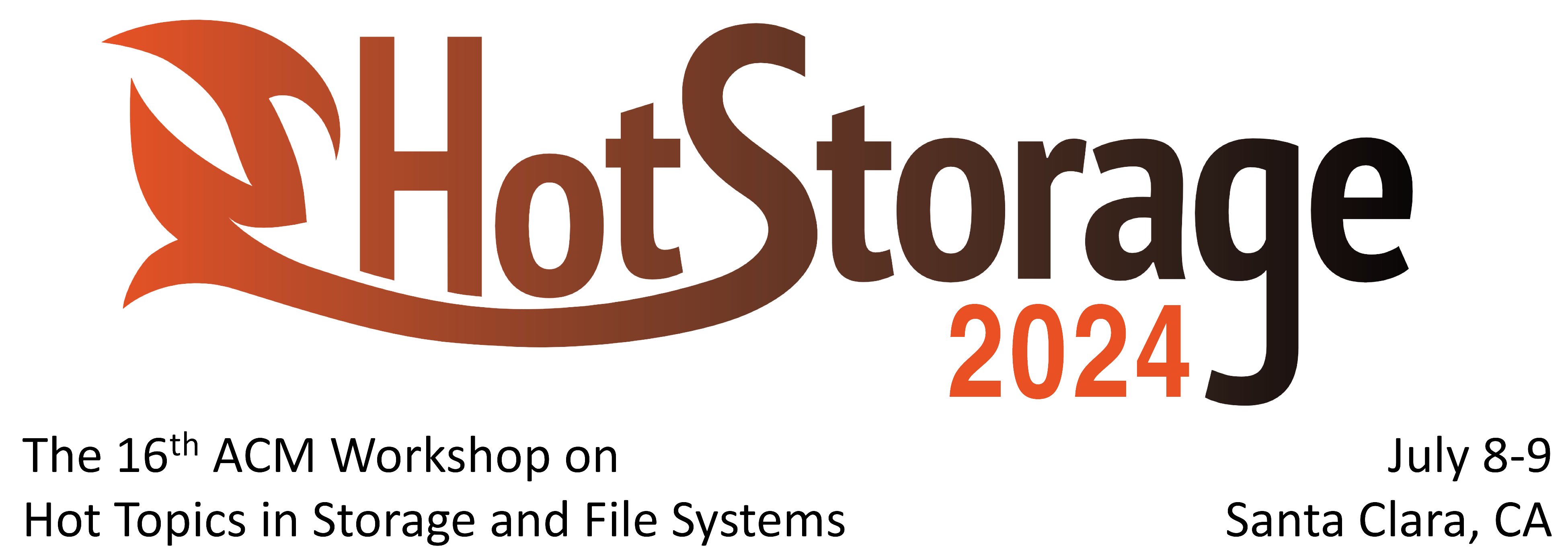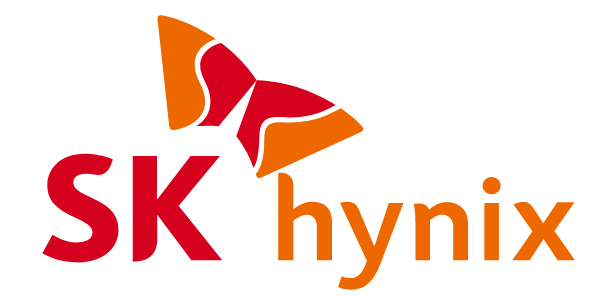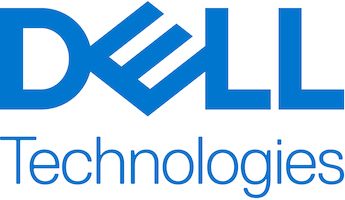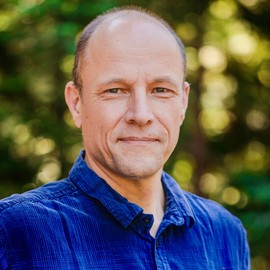
Sponsored By

In Cooperation With

Gold Sponsors


Silver Sponsors


Logo design by Michal O. Zadok.
Full ProgramDay 1: Monday, July 8th, 2024
Day 2: Tuesday, July 9th, 2024
Keynote TalksThe impact of Ceph on open source at UC Santa Cruz and beyondCarlos Maltzahn [Abstract], [Speaker Bio], [Slides]
Abstract:
The Ceph free and open source software-defined storage platform evolved from Sage Weil's working prototype file system for a 2005 summer project at UC Santa Cruz to IBM Storage Ceph, one of the most successful storage systems today. It combines openness with the support by many vendors and is a system of choice for national/international cyberinfrastructures for open science, including in storage systems research. In the presentation, I will briefly go over some of the lessons that enabled Ceph’s success and then focus on how that motivated the institutional support for open source software at UC Santa Cruz and beyond. With the help of Sage Weil, we established the Center for Research in Open Source Software (CROSS) in 2015 to support/promote open source research products and embed them in open source ecosystems. In the meantime an increasing number of major corporations established open source program offices (OSPOs) to implement their open source strategies and to manage strategic dependencies on open source software communities. Similar dependencies also exist in university research enterprises, but there the focus is on unlocking the potential of open source communities to amplify the impact of scientific research. Thanks to the success of CROSS and to the generous support from Sloan Foundation, in 2022 UC Santa Cruz became one of the first universities to establish an OSPO. And earlier this year, UC Santa Cruz is leading the first Network of OSPOs across six University of California campuses, including UC Berkeley, UC Davis, UCLA, UC San Diego, and UC Santa Barbara — again funded by Sloan Foundation. This Network focusses on (1) the discovery and measurement of university open source landscapes, (2) training, development, and mentoryship, and (3) open source project sustainability.
Bio:
Carlos Maltzahn retired from UC Santa Cruz on December 15, 2023. He was the founder and director of the UC Santa Cruz Center for Research in Open Source Software (CROSS) and the Open Source Program Office (OSPO) UC Santa Cruz. He also co-founded the Systems Research Lab, known for its cutting-edge work on programmable storage systems, big data storage & processing, scalable data management, distributed system performance management, and practical reproducible evaluation of computer systems. Carlos joined UC Santa Cruz in 2004, after five years at Netapp working on network-intermediaries and storage systems. In 2005 he co-founded and became a key mentor on Sage Weil’s Ceph project. In 2008 Carlos became a member of the computer science faculty at UC Santa Cruz and has graduated ten Ph.D. students since. Carlos graduated with a M.S. and Ph.D. in Computer Science from University of Colorado at Boulder. PanelsStorage and Machine Learning - What can we learn from each other?Assaf Eisenman (Meta), Zhichao Cao (ASU), Janki Bhimani (FSU), Erez Zadok (Stony Brook) SessionsSession 1: Data Encoding and CompressionSession Chairs: Amy Tai (Google)
Is Low Similarity Threshold A Bad Idea in Delta Compression?
[Paper ]
[Slides]
Dictionary Based Cache Line Compression
[Paper]
[Slides]
Revisiting Erasure Codes: A Configuration Perspective
[Paper ]
[Slides]
Session 2: LLMs to the rescue Session Chairs: Sudarsun Kannan (Rutgers University)
Can Modern LLMs Tune and Configure LSM-based Key-Value Stores?
[Paper ]
[Slides]
SK Hynix Best Paper Award Winner!
ION: Navigating HPC I/O Optimization Journey using Large Language Models
[Paper ]
[Slides]
Session 3: Considering Workloads Session Chairs: André Brinkmann (Johannes Gutenberg University Mainz)
Context-aware Prefetching for Near-Storage Accelerators
[Paper]
[Slides]
Advocating for Key-Value Stores with Workload Pattern Aware Dynamic Compaction
[Paper]
[Slides]
Session 4: Keeping Data Correct Session Chairs: Gala Yadgar (Technion Haifa)
Secure Archival is Hard... Really Hard
[Paper]
[Slides]
Asymmetric RAID: Rethinking RAID for SSD Heterogeneity
[Paper]
[Slides]
Shadow Filesystems: Recovering from Filesystem Runtime Errors via Robust Alternative Execution
[Paper]
[Slides]
Session 5: Minimizing Latencies Session Chairs: Jason Xue (Mohamed bin Zayed University of Artificial Intelligence)
Breaking Barriers: Expanding GPU Memory with Sub-Two Digit Nanosecond Latency CXL Controller
[Paper]
[Slides]
Improving Virtualized I/O Performance by Expanding the Polled I/O Path of Linux
[Paper]
[Slides]
Session 6: Storage and Machine Learning
Session Chairs: Zhichao Cao (ASU)
Rethinking Erasure-Coding Libraries in the Age of Optimized Machine Learning
[Paper]
[Slides]
A Selective Preprocessing Offloading Framework for Reducing Data Traffic in DL Training
[Paper]
[Slides]
Quantitative Analysis of Storage Requirement for Autonomous Vehicles
[Paper]
[Slides]
Session 7: Storage Technologies Session Chairs: Janki Bhimani (FIU)
Can ZNS SSDs be Better Storage Devices for Persistent Cache?
[Paper]
[Slides]
Can Storage Devices be Power Adaptive?
[Paper]
[Slides]
Life-after-Death: Exploring Thermal Annealing Conditions to Enhance 3D NAND SSD Endurance
[Paper]
[Slides]
|
